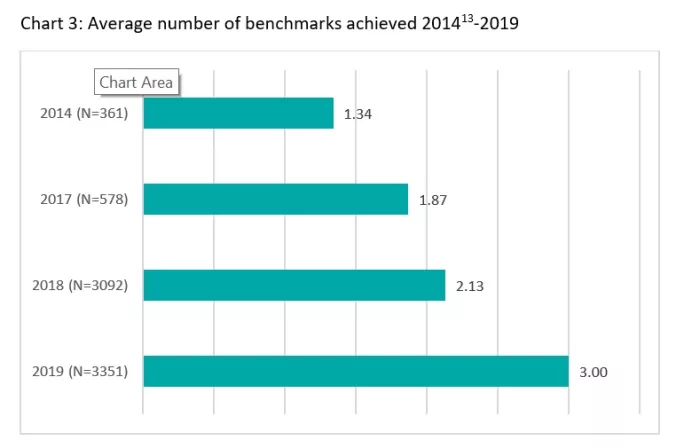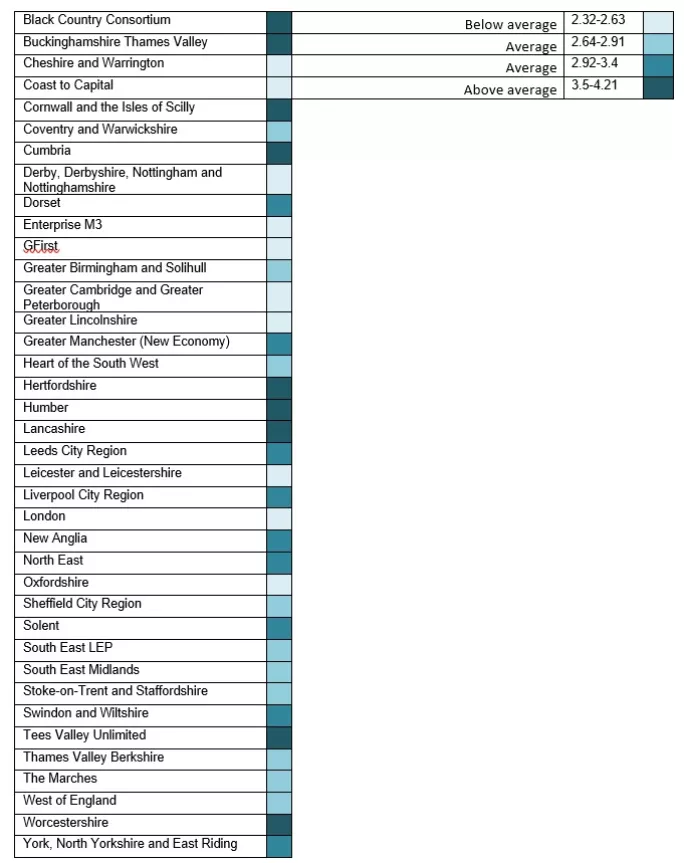- Home
- Careers education variable but ‘improving’
Careers education variable but ‘improving’

One in 10 colleges and schools are still not fully achieving any of the eight Gatsby Benchmarks assessing the quality of careers advice - but more deprived areas continue to be among the areas performing above average, according to a new report.
The Careers & Enterprise Company’s third annual state of the nation report, published today, says that the proportion not fully achieving any of the eight benchmarks - which include linking the curriculum to careers and enabling student encounters with employers - fell from 18 per cent in 2018 to 10 per cent in 2019. “Ninety-nine schools and colleges have achieved all 8 benchmarks, compared to 21 in 2018. Among the 99 are all types of establishment, demonstrating that it is achievable for a range of providers,” says the report.
Read more: School careers leaders: who are they?
More news: ‘Too often, careers advice is treated like a grubby little secret’
Profile: Careers & Enterprise chair: ‘We run a tight ship’
Gatsby Benchmarks
The introduction of the Gatsby Benchmarks followed a 2014 report by the Gatsby Charitable Foundation on good career guidance in colleges and schools. The Careers & Enterprise Company worked with the Gatsby Charitable Foundation to develop Compass - a self-assessment tool which allows schools and colleges to compare their provision to both the Gatsby Benchmarks and to other providers. Today’s report is the third annual report on the data gathered by the Compass tool. While there were 578 Compass completions in 2016-17, 3,351 completed the tool most recently in the 2018-19 academic year. Of them, 7 per cent were colleges.
Today’s report find that by the end of the 2018-19 academic year, schools and colleges were achieving an average of 3.0 benchmarks. Over the past year, there has been an increase of 0.9 benchmarks compared to 0.26 over the previous year, and every benchmark has seen a substantial increase in the proportion of schools and colleges reaching full achievement.

On average, 68 per cent of young people in the schools and colleges that have completed Compass are receiving an employer encounter every year - a total of 2 million young people.
Variation between LEPs
And while all of the 38 local enterprise partnerships in England report a range of performance and almost every area has some schools and colleges which are meeting none of the benchmarks and some that are performing well, there remains some variation between the different LEPs.
The average number of benchmarks achieved in the LEPs varies between 2.3 in Cheshire and Warrington LEP and 4.2 in Tees Valley LEP and Buckinghamshire Thames Valley LEP. “The reason for variation between the LEPs is unclear and we should be careful about drawing too many conclusions based on what are subtle variations in average performance between very different areas. There was only partial consistency in the relative performance of LEPs between 2017-18 and 2018-19. Three LEPs were among the highest achieving in both years: Hertfordshire, Humber and Tees Valley,” the report states.

The Careers and Enterprise Company has also said that 20 new careers hubs will be set up in 2019-20, “building on the learning of the first wave of hubs”.
“With the strengthening of networks in these areas, training for careers leaders and support from the hub lead, we expect to see continued progress,” says the state of the nation report. “It will also be the year when careers leaders, who are largely new to the role, will become established within their schools and colleges and continue to benefit from training.”
‘Careers education is now improving’
Claudia Harris, chief executive of the Careers & Enterprise Company, said: “After decades of under-performance, careers education is now improving - fast. In under five years we’ve moved from something patchy and often low quality to a system recognised as world-class, operating at national scale. Business is at the heart of this new approach, creating real life experiences and opportunities for young people, connecting them to the modern labour market and helping them imagine and plan for their futures.
“We know that regular interactions with employers has a significant long-term impact on young people. They’re less likely to be unemployed, likely to earn more, and get better grades.
“We are delighted with the progress to date and want to see things continue to improve in the years ahead.”
Keep reading for just £1 per month
You've reached your limit of free articles this month. Subscribe for £1 per month for three months and get:
- Unlimited access to all Tes magazine content
- Exclusive subscriber-only stories
- Award-winning email newsletters



